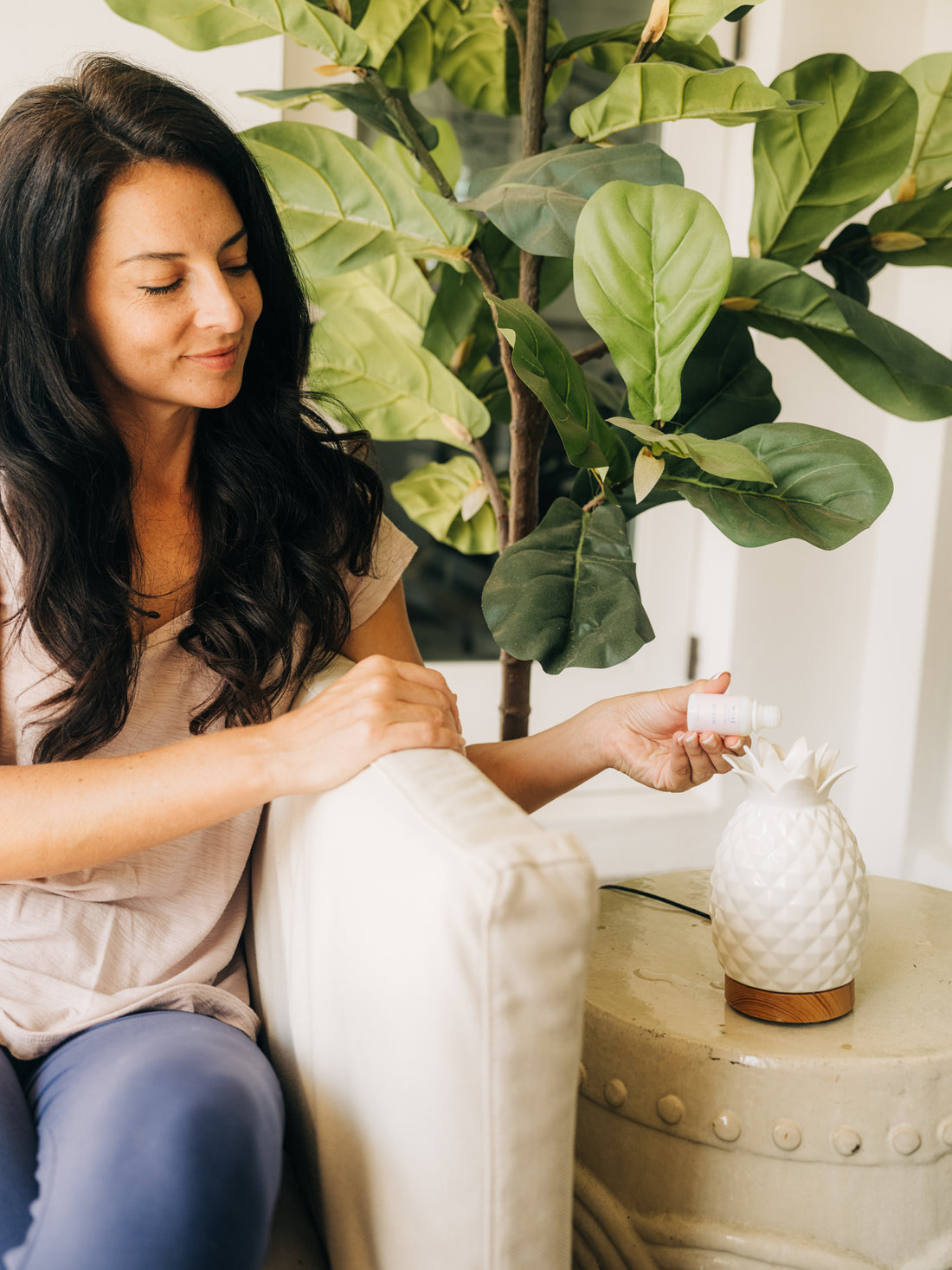Yoga is an ancient practice that helps create harmony between the body, mind, and soul, allowing individuals to foster personal growth, health, and well-being. As people increasingly turn to yoga for improved mental and physical resilience in the face of a hectic, modern lifestyle, complementary practices play an essential role in enhancing the overall experience.
Aromatherapy, the practice of using the aromatic and therapeutic properties of essential oils, can perfectly complement a yoga practice, enriching and deepening the entire experience. At MOXĒ, we craft earth-friendly and natural essential oil products designed to support every step of your day, including time spent on the mat.
In this guide, we will explore the benefits of incorporating our natural essential oil products into your yoga practice and share practical tips and suggestions for getting the most out of this fusion of ancient arts. Experience a deeper sense of balance, invigorated concentration, and soothing relaxation through the integration of aromatherapy and yoga, and pave the way to a more mindful and holistic approach to your well-being.
Unleash the potential of our earth-friendly essential oil products in enhancing the quality of your yoga practice and experience the transformative effects of combining these two ancient healing practices. Immerse yourself in the soothing aromas and therapeutic power of nature as you flow from one pose to another, cultivating a deeper mind-body connection and opening the door to a whole new world of harmony, balance, and self-discovery.
Finding the Right Essential Oils for Your Yoga Practice
Begin your journey to an enhanced yoga practice by selecting essential oils that align with your intentions and desired outcomes. Below are some popular oils known to complement various aspects of yoga:
1. Lavender Oil: Renowned for its calming properties, lavender essential oil is ideal for promoting relaxation and easing tension during restorative yoga sessions or as part of your pre-sleep routine.
2. Peppermint Oil: With its invigorating and cooling qualities, peppermint essential oil is perfect for enhancing focus and energy during more dynamic, strength-building practices like Vinyasa or Power Yoga.
3. Frankincense Oil: Often used in meditation, frankincense essential oil has a grounding effect that helps deepen the sense of balance and connectivity during standing poses or balancing asanas.
4. Eucalyptus Oil: Known for its refreshing and revitalizing properties, eucalyptus essential oil can be helpful for maintaining clear and steady breathing throughout your practice, particularly during pranayama exercises.
Incorporating Essential Oils into Your Yoga Routine
Explore various ways to introduce essential oils into your yoga practice, maximizing their benefits and enhancing your overall experience:
1. Diffuse during Practice: Set the atmosphere in your practice space by utilizing an essential oil diffuser. Choose an essential oil that aligns with your practice's intention – for example, diffuse lavender oil during a restorative session or peppermint oil for an energizing flow.
2. Apply Topically: Dilute essential oils with a carrier oil, like jojoba or almond oil, and apply them to pulse points before starting your practice. Apply a grounding oil like frankincense to your wrists or temples while setting your intentions, or use a relaxing oil like lavender on your chest and neck to promote a sense of calm.
3. Create a Yoga Mat Spray: Mix a few drops of your chosen essential oil with water and a splash of witch hazel in a spray bottle. Use this blend to clean and scent your yoga mat before and after practice. Focus on antibacterial oils like tea tree or eucalyptus to keep your mat fresh and germ-free.
4. Enhance Meditation: Augment your yoga and meditation practice by inhaling essential oils that promote mental clarity and focus, like rosemary or lemon. Use a personal inhaler or apply a few drops to a tissue to experience the full aromatic benefits of these oils.
Safety Tips and Precautions
While essential oils can greatly enhance your yoga experience, it's essential to prioritize safety and mindfulness. Keep these precautions in mind while using essential oils during your yoga practice:
1. Dilution: Essential oils are highly concentrated and must be diluted with a carrier oil before applying them to the skin. Common carrier oils include coconut, almond, jojoba, and grapeseed oil. A general rule of thumb is to use a 2% dilution, which equates to about 12 drops of essential oil per ounce of carrier oil.
2. Sensitivity: Perform a patch test by applying a small amount of diluted essential oil to your inner forearm or wrist and wait 24 hours to check for any adverse reactions.
3. Phototoxicity: Some essential oils, especially citrus oils, can cause phototoxic reactions if used topically before sun exposure. Avoid applying these oils to skin exposed to sunlight or UV light.
4. Pregnancy and Health Conditions: Consult with a healthcare professional before using essential oils if you are pregnant, breastfeeding, or have any pre-existing medical conditions or concerns.
Final Thoughts
By incorporating our earth-friendly essential oil products into your yoga practice, you can deepen your connection to yourself and the world around you, fostering an enriched sense of inner harmony, balance, and relaxation. Experience the holistic benefits of blending ancient healing practices, and allow the powerful synergy of essential oils and yoga to guide your journey to a healthier and more mindful lifestyle.
Embrace the transformative potential of MOXE essential oils for focus and memory in enhancing the quality of your practice, elevating every moment on the mat, and enriching your overall well-being!

